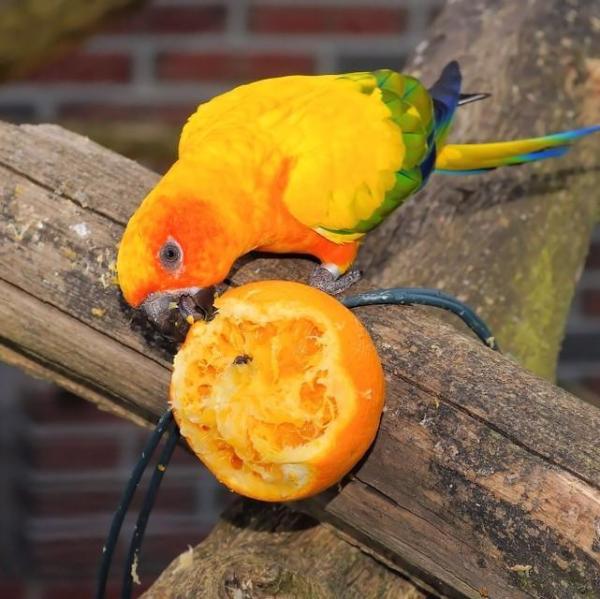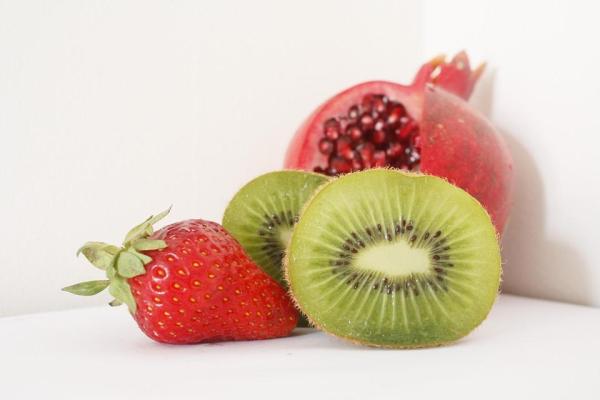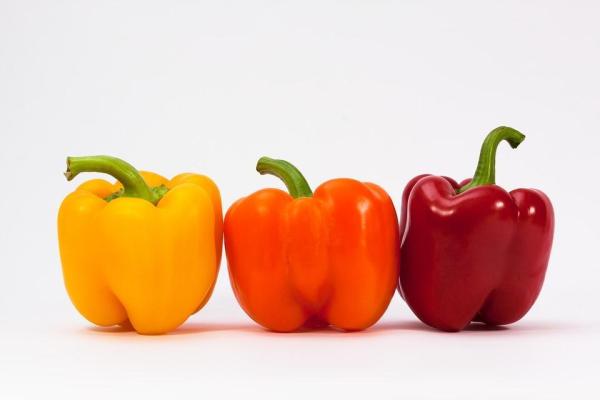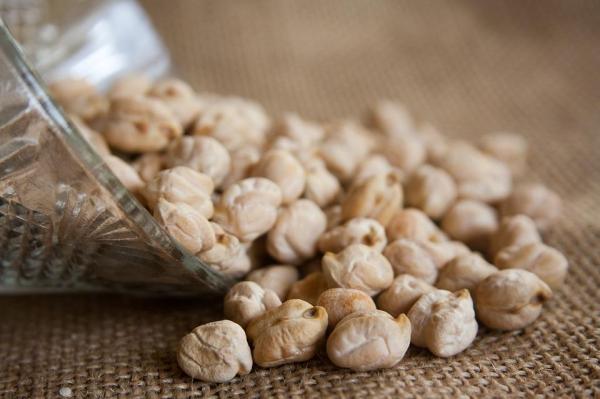
Half of a parrot's diet is made up of fruit and vegetables, which must be supplemented by the other half in dry food, completing its nutritional intake. A good quality, varied and balanced diet will make your parrot happy and healthy. Of course, you should research the specific requirements of your particular kind of parrot to ensure you give it the right diet and care.
This AnimalWised article will explain the most appropriate fruit and vegetables for parrots with an overview of their nutritional value. Don't forget that a diet lacking in fruit and vegetables will make your parrot susceptible to diseases, as well as make it less active.
Why are fruit and vegetables so important?
Half of a suitable diet for a parrot consists of dry, prepared food. This type of food includes seeds, minerals and vitamins, and helps fulfill their nutritional needs so it doesn't have any kind of deficiency.
However, more and more people are turning to natural and healthy foods, imitating what their parrots would find in their natural habitat. That's why it is essential to learn about what seeds are beneficial for your species of parrot. They include:
- Birdseed
- Hemp
- Thistle
- Safflower
- Yellow millet
- Red millet
- Sunflower
- Buckwheat
- Oats
- Pumpkin
It is important to give your parrot a variety of fruit and vegetables so that they get natural vitamins suitable for their plumage instead of artificial ones. Below, we explain what are the most appropriate fruit and vegetables, and how you should prepare them.
Fruit for parrots
Fruit is both necessary and perfect for parrots, and it directly conditions the colors of their feathers. Fruit will also keep your parrot healthy and active. However, it is important to check what kinds of fruit you can give it, because there are some with an excessive sugar content which could adversely affect their health when given in excess.
Ideally, your parrot should get a variety of fruit. By varying the fruit, it will get the different vitamins it needs. Your parrot should be fed three different types of fruit each day. Don't forget to wash the fruit thoroughly to get rid of pesticides.
Fruits that can be given to your parrot every day include:
- Apple
- Pear
- Tangerine
- Orange
- Apricot
- Cranberry
- Strawberry
- Grapefruit
- Watermelon
- Kiwi
- Pineapple
- Papaya
- Khaki
- Pomegranate
You should only feed your parrot the following fruit 2 or 3 times a week:
- Mango
- Cherry
- Grape
- Cantaloupe
- Banana
- Peach
- Medlar

Vegetables for parrots
Parrots extract the necessary protein from each vegetable, which is why it is so important to identify the plants with the most important nutrients. You should also occasionally include a small portion of pulses so that your parrot gets all the protein it needs.
As with fruit, you must make sure you wash all the pieces thoroughly before you give them to your parrot. Vegetables that can be given to your parrot every day include:
- Spinach
- Broccoli
- Artichoke
- Beans
- Cauliflower
- Bell pepper
- Swiss chard
- Endive
- Chicory
- Carrot
- Radish
- Celery
You should only feed your parrot the following vegetables 2 or 3 times a week:
- Lettuce
- Cooked sweet potato
- Boiled potato

More natural foods
In addition to fruit and vegetables, you can also feed your parrot other types of natural food to make their diet very nutritious and tasty:
- Pulses: Pulses are a great contribution to your parrot's diet, but they must only be given once or twice a week. You should soak them so they are not too hard for your parrot to eat. Some examples of pulses include lentils, chickpeas, soybeans and quinoa.
- Rice: Rice is a cereal that can be very beneficial for your parrot. You should also soak rice before feeding it to your parrot so that it puffs up and doesn't cause any serious intestinal problems.
- Nuts: Your parrot should be fed this type of food very occasionally to prevent problems in its digestive system. You can use nuts as a reward if you are teaching your parrot small tricks. They are especially suitable during colder months. Some examples of nuts include walnuts, hazelnuts, pistachios or pine nuts.

Forbidden foods for parrots
Foods mentioned below can be very harmful to your parrot's health. They should be avoided at all costs:
- Avocado
- Meat
- Fish
- Milk
- Fried food
- Soft drinks
- Tomato
- Sugar
- Coffee
- Alcohol
- Chocolate
Here you can find a complete list of forbidden food for parrots.
What is the appropriate daily amount of fruit and vegetables?
Ideally, you should feed your parrot twice a day so that it feels fuller for longer. The daily amount of food will depend on the species, since there are larger or smaller parrots.
The largest parrots such as macaws can indulge in a cup and a half of fruits and vegetables daily, whereas smaller parrots such as lories will benefit from just 3/4 of a cup.

If you want to read similar articles to Fruit and Vegetables for Parrots, we recommend you visit our Homemade diets category.